During the first weekend following my arrival at Welcommon Hostel, I had the chance to attend a three-day seminar bringing together different NGOs working on migration issues and coming from different countries: Philippines, United States, Greece, Albania, Poland …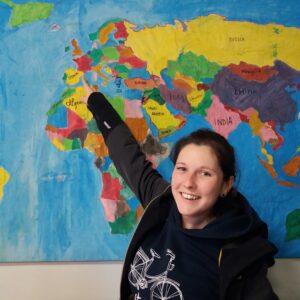
These first days were very interesting and allowed me to update my knowledge concerning the migration crisis in Athens in recent years. They also allowed me to meet many different actors with whom I would like to stay in touch if I continue to work on these issues, and also to participate in empowerment workshops such as the “Story telling” workshop or “organize effective crowdfunding ”.
The following days were a little more difficult because there were only two of us in the volunteer team in December, which did not correspond to what was announced in the description that I had personally found on the Workaway site. Also, the missions were ultimately not those announced.

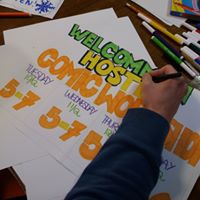
The second week, we organized a workshop “Make your own comic strip” where only two teenagers participated, one of whom spoke no English at all, which made us completely readjust the workshop created. Then, I organized a workshop “Create your own stand for the Welcommon Hostel winter market“. Again, no one came during the week, except on Saturday when four children and their mother came.
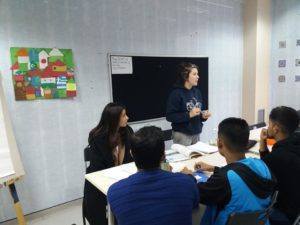 So, from the observation that creating workshops was not enough because the new comers were not already used to coming to Welcommon Hostel for such activities, I had to readjust the tasks to be done. In the following weeks, I therefore concentrated on making the communication as much as possible for NGOs established around the Exarchia district thanks to contacts that had given me by Ida, one of the receptionists of the hotel. I also changed the formula, instead of offering activities over an entire week, I preferred to offer several short activities taking place once a week. This is how I started to work on the installation of a film club, a karaoke, and a “Sunday activity”.
So, from the observation that creating workshops was not enough because the new comers were not already used to coming to Welcommon Hostel for such activities, I had to readjust the tasks to be done. In the following weeks, I therefore concentrated on making the communication as much as possible for NGOs established around the Exarchia district thanks to contacts that had given me by Ida, one of the receptionists of the hotel. I also changed the formula, instead of offering activities over an entire week, I preferred to offer several short activities taking place once a week. This is how I started to work on the installation of a film club, a karaoke, and a “Sunday activity”.
English lessons meanwhile worked well. There were two advanced students when I arrived and as the weeks went by, the English course kept growing with new students; at the end of my volunteering we had a good twenty students coming more or less regularly. I really enjoyed giving English lessons, trying to find learning methods, and reviewing grammar basics to pass them on.
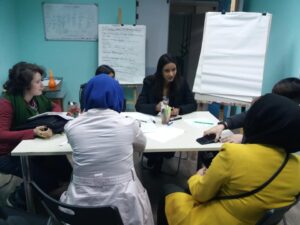
To conclude, the month of December was a bit fluctuating because there were few people coming to the hotel and few volunteers. And the last two weeks have been very hard, because nobody came to the workshops, the second volunteer from Australia left without giving any news and the new Indian volunteers were not very helpful during this period, arriving regularly with about three hours late. I felt quite depressed during this period, feeling left on my own without support, and having to work on tasks different from those announced without support from other volunteers.
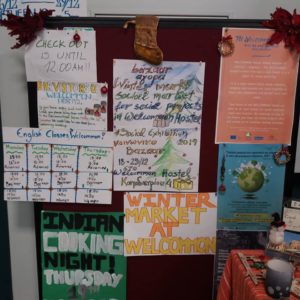 Fortunately in early January three new volunteers arrived: Ben, Roseanna and Franziska! One of the Indian volunteers Noyonika also stayed. With this small team, we all got along very well to continue the activities at the Welcommon Hostel. This very enthusiastic new team dynamic allowed the activities to work little by little! Thanks to the support that we gave to each other, communication started to gain momentum and we were able to divide up the missions to be carried out: create posters announcing events, go and stick them in different places, communicate on Facebook, better distribute the students of the beginners and advanced English lessons, animate the events and look for other associations in the area to create partnerships.
Fortunately in early January three new volunteers arrived: Ben, Roseanna and Franziska! One of the Indian volunteers Noyonika also stayed. With this small team, we all got along very well to continue the activities at the Welcommon Hostel. This very enthusiastic new team dynamic allowed the activities to work little by little! Thanks to the support that we gave to each other, communication started to gain momentum and we were able to divide up the missions to be carried out: create posters announcing events, go and stick them in different places, communicate on Facebook, better distribute the students of the beginners and advanced English lessons, animate the events and look for other associations in the area to create partnerships.
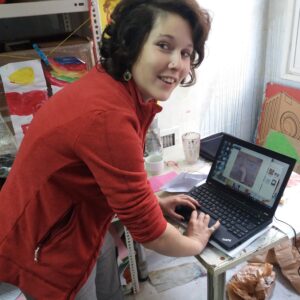 Roseanna and Ben have also created online communication tools to exchange our resources thanks to a Google Drive and to identify new students in the English course and have a follow-up on each student’s progress. Then we set up more regular team meetings aimed at improving our functioning and our activities, and meetings with the manager to communicate to him our intentions of activities and to ask him questions concerning the safety rules in Greece. We started asking the English class students if they had any ideas for activities they would like to do. Also, for the more advanced in English we asked them if they would like to teach in turn, and we proposed to some students if they would like to share their knowledge in Farsi, Arabic, French or in other areas of activities.
Roseanna and Ben have also created online communication tools to exchange our resources thanks to a Google Drive and to identify new students in the English course and have a follow-up on each student’s progress. Then we set up more regular team meetings aimed at improving our functioning and our activities, and meetings with the manager to communicate to him our intentions of activities and to ask him questions concerning the safety rules in Greece. We started asking the English class students if they had any ideas for activities they would like to do. Also, for the more advanced in English we asked them if they would like to teach in turn, and we proposed to some students if they would like to share their knowledge in Farsi, Arabic, French or in other areas of activities.
Franziska allowed, with the help of the team and the hotel manager, several teenagers from our English lessons to organize a kick-boxing session at the Welcommon Hostel. We learned about safety issues, found the basic equipment necessary for the workshop to run, and the manager helped us find a professional to accompany the workshop.
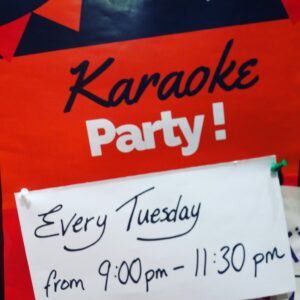 We also allowed other teenagers to organize a music evening at the Welcommon Hostel bar thanks to a DJ they knew. So, little by little, all the activities started to attract more and more people. But it was necessary to constantly support the communication with the students of the English course after having noticed that nobody came to the events when we did not insist every day, even if the week before a lot of people had come.
We also allowed other teenagers to organize a music evening at the Welcommon Hostel bar thanks to a DJ they knew. So, little by little, all the activities started to attract more and more people. But it was necessary to constantly support the communication with the students of the English course after having noticed that nobody came to the events when we did not insist every day, even if the week before a lot of people had come.
To conclude, the month of January was much more rewarding. I learned a lot from Roseanna and Franziska thanks to their knowledge of social work: I learned in particular that the most important whatever the organized activity is to spend a pleasant time all together and to create team, to remain vigilant in the way of proposing these activities to avoid waking up traumas and remaining adaptable to different personal situations, and finally to allow others as soon as possible to become active actors in their turn.
I also learned a lot from Ben by attending some of his English lessons. I was inspired by some of his learning methods and I gained more self-confidence while teaching. Working in duo with Roseanna was also beneficial for us may exchange our resources and methods.
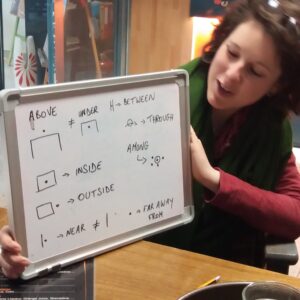 For communication, I remember that what was most effective to communicate informally in different places welcoming refugee populations: canteens, free shop, party places … Also, have a start of friendly relationship with some people we met often made them want to join our activities.
For communication, I remember that what was most effective to communicate informally in different places welcoming refugee populations: canteens, free shop, party places … Also, have a start of friendly relationship with some people we met often made them want to join our activities.
Finally, word of mouth ended up working, friends of our students began to come more and more. For cultural events, concentrating communication with students of English courses has also proven to be more effective than trying to reach new people from other organizations.
Finally, I am very happy to have left on a very positive final note. We organized a visit to the Acropolis of Athens on the first Sunday of the month when all the historic sites and museums are free. Many of our young and old students came. On this occasion, I organized a “chocolate photo rally”. The animation worked very well, everyone came out very happy with the activity, and we ended with a huge outdoor game with students from another school, curious to meet us.
Finishing with this great outing was very encouraging for me, despite the difficult beginnings, I keep precious everything I have learned and all the wonderful meetings I have made during these two months.
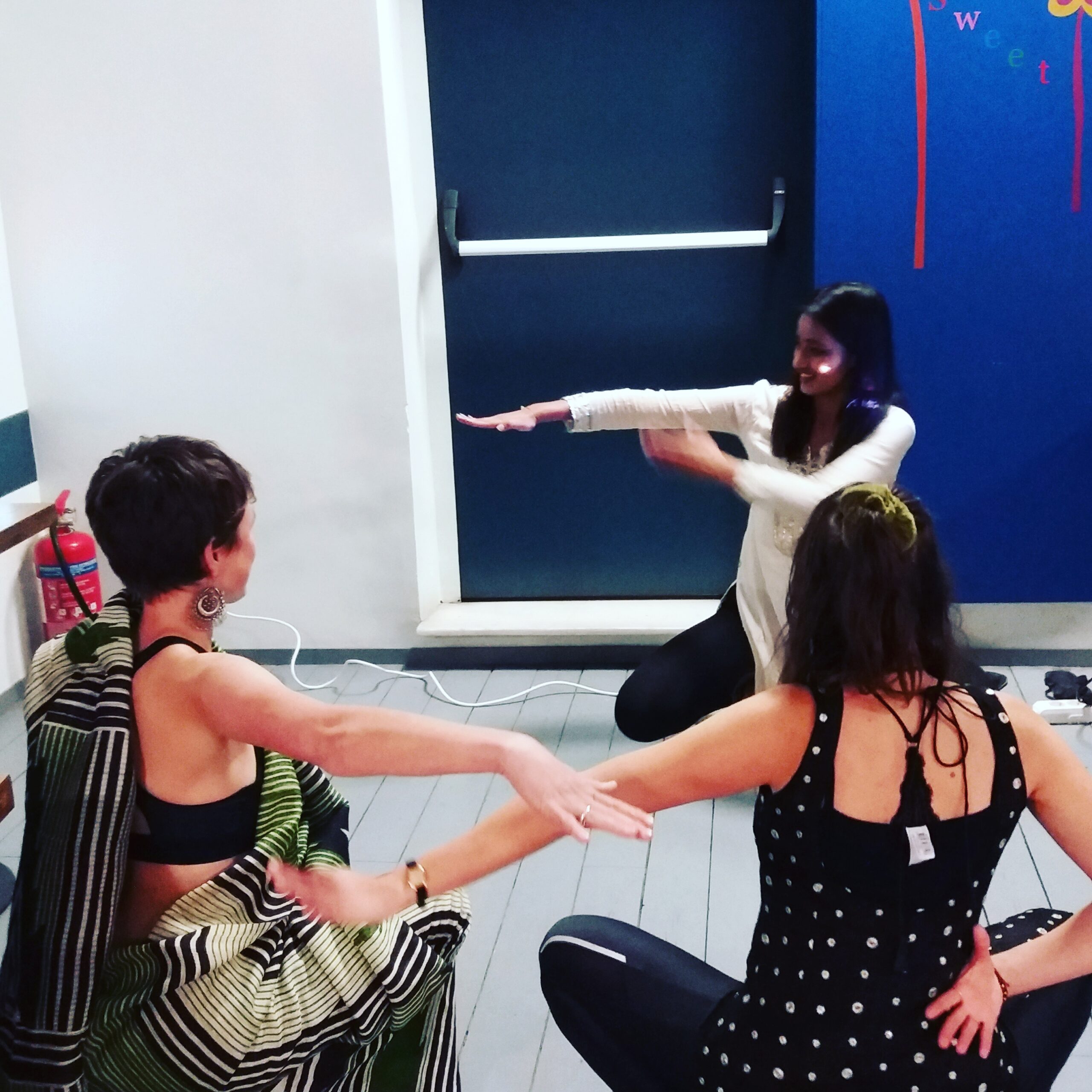
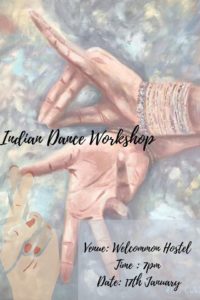
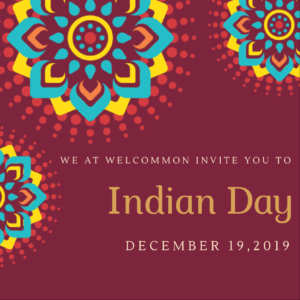
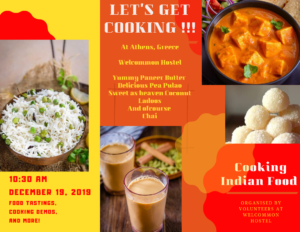
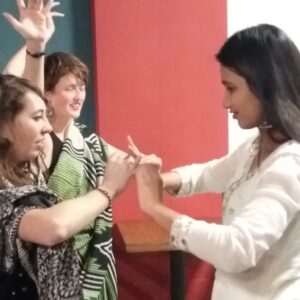
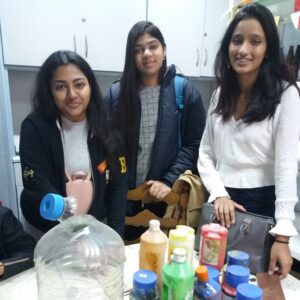
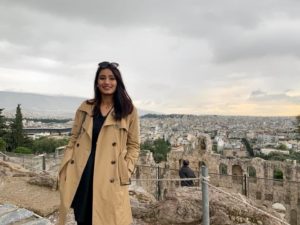 Apart from teaching, I am very interested in journalism, editing and content creation, and this volunteering experience will help her know a lot about communities better.
Apart from teaching, I am very interested in journalism, editing and content creation, and this volunteering experience will help her know a lot about communities better.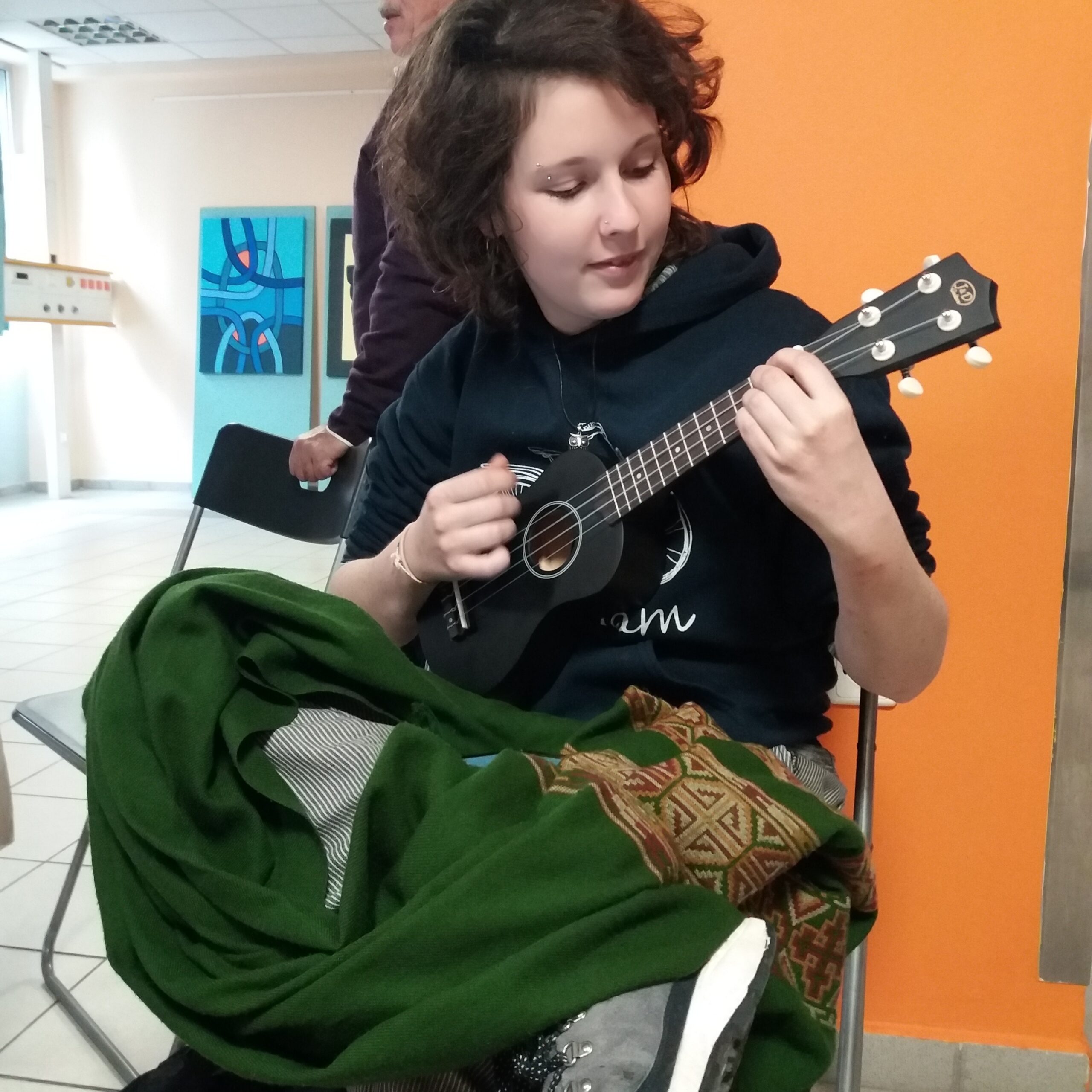



 So, from the observation that creating workshops was not enough because the new comers were not already used to coming to Welcommon Hostel for such activities, I had to readjust the tasks to be done. In the following weeks, I therefore concentrated on making the communication as much as possible for NGOs established around the Exarchia district thanks to contacts that had given me by Ida, one of the receptionists of the hotel. I also changed the formula, instead of offering activities over an entire week, I preferred to offer several short activities taking place once a week. This is how I started to work on the installation of a film club, a karaoke, and a “Sunday activity”.
So, from the observation that creating workshops was not enough because the new comers were not already used to coming to Welcommon Hostel for such activities, I had to readjust the tasks to be done. In the following weeks, I therefore concentrated on making the communication as much as possible for NGOs established around the Exarchia district thanks to contacts that had given me by Ida, one of the receptionists of the hotel. I also changed the formula, instead of offering activities over an entire week, I preferred to offer several short activities taking place once a week. This is how I started to work on the installation of a film club, a karaoke, and a “Sunday activity”.
 Fortunately in early January three new volunteers arrived: Ben, Roseanna and Franziska! One of the Indian volunteers Noyonika also stayed. With this small team, we all got along very well to continue the activities at the Welcommon Hostel. This very enthusiastic new team dynamic allowed the activities to work little by little! Thanks to the support that we gave to each other, communication started to gain momentum and we were able to divide up the missions to be carried out: create posters announcing events, go and stick them in different places, communicate on Facebook, better distribute the students of the beginners and advanced English lessons, animate the events and look for other associations in the area to create partnerships.
Fortunately in early January three new volunteers arrived: Ben, Roseanna and Franziska! One of the Indian volunteers Noyonika also stayed. With this small team, we all got along very well to continue the activities at the Welcommon Hostel. This very enthusiastic new team dynamic allowed the activities to work little by little! Thanks to the support that we gave to each other, communication started to gain momentum and we were able to divide up the missions to be carried out: create posters announcing events, go and stick them in different places, communicate on Facebook, better distribute the students of the beginners and advanced English lessons, animate the events and look for other associations in the area to create partnerships.
 We also allowed other teenagers to organize a music evening at the Welcommon Hostel bar thanks to a DJ they knew. So, little by little, all the activities started to attract more and more people. But it was necessary to constantly support the communication with the students of the English course after having noticed that nobody came to the events when we did not insist every day, even if the week before a lot of people had come.
We also allowed other teenagers to organize a music evening at the Welcommon Hostel bar thanks to a DJ they knew. So, little by little, all the activities started to attract more and more people. But it was necessary to constantly support the communication with the students of the English course after having noticed that nobody came to the events when we did not insist every day, even if the week before a lot of people had come.
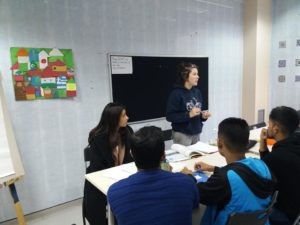
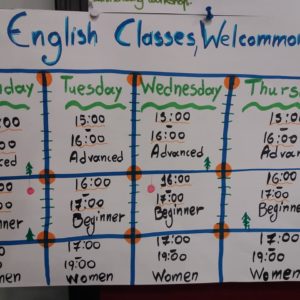
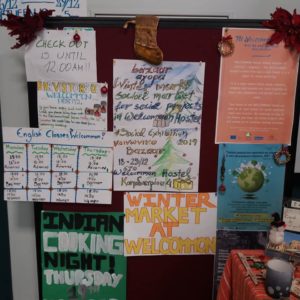

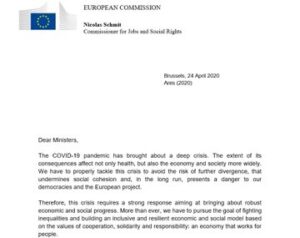
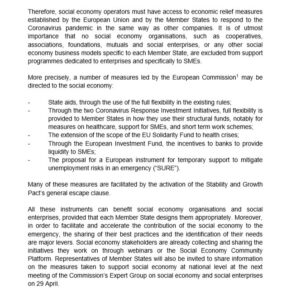
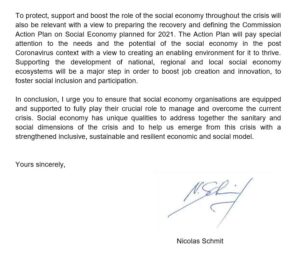
Recent Comments